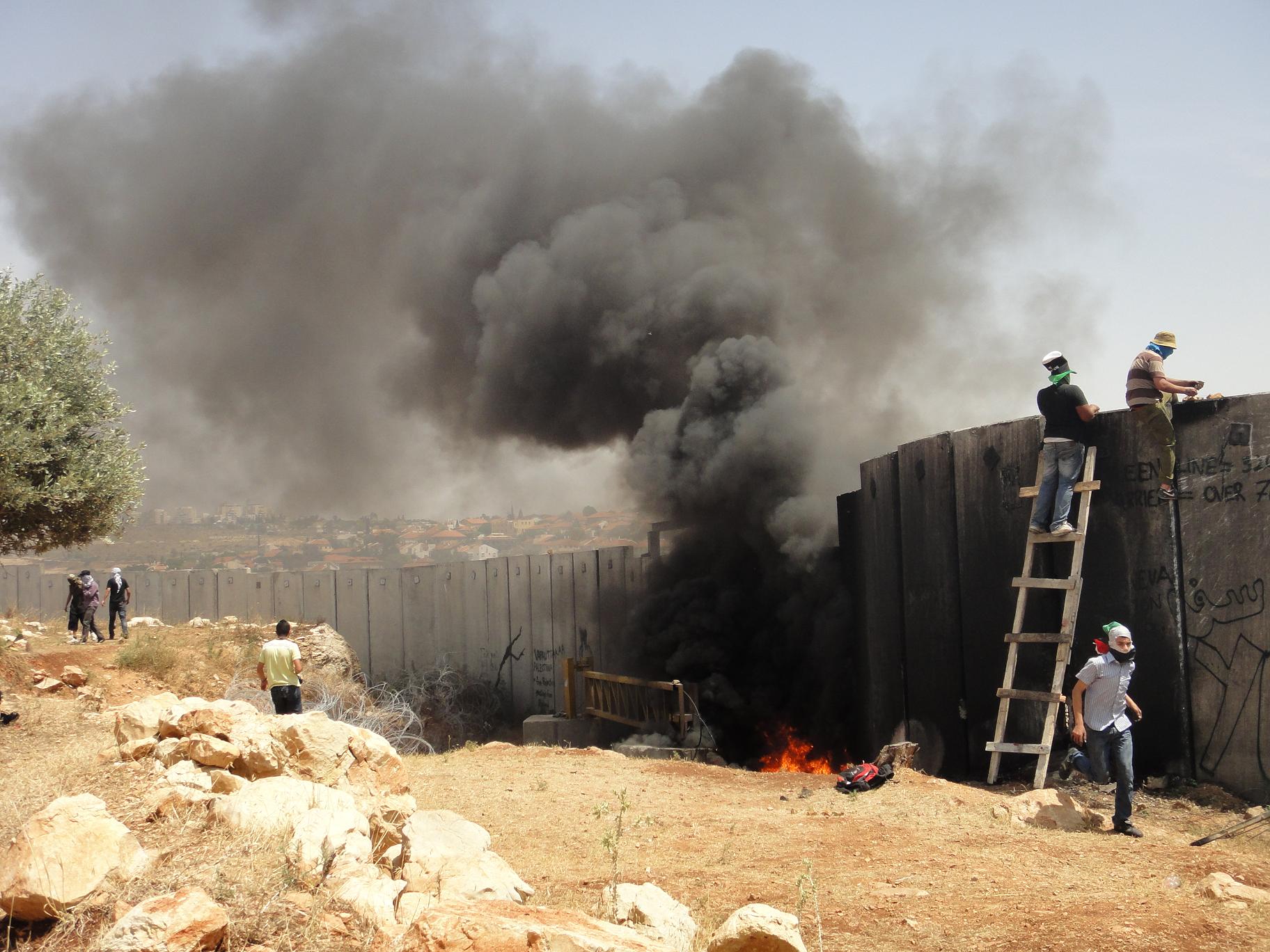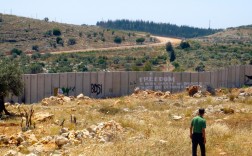Tag: Ni’lin
-
Photo essay: Gas, frisbees and the Apartheid Wall in Ni’lin
24th May 2013 | International Solidarity Movement, Team Nablus | Ni’lin, Occupied Palestine Friday demonstrations continue in the village of Ni’lin in protest against the Occupation and Apartheid Wall which runs through the village’s land. Background on the effects of the Occupation in Ni’lin is here. During this particular demonstration on the 24th May 2013,…
-
Revisiting Ni’lin after four years
2nd May 2013 | International Solidarity Movement, Ni’lin, Occupied Palestine By Team Nablus It’s been four years since I had visited and lived in Ni’lin and the decision to visit on Friday filled me simultaneously with excitement and longing but also dread. Four years ago I had supported the non violent resistance in Ni’lin as…
-
Ni’lin continues to resist after 5 years of Israeli occupation and systematic land theft
27th April 2013 | International Solidarity Movement, Ni’lin, Occupied Palestine By Team Nablus Around 50 Palestinians supported by around 20 international activists, demonstrated against the apartheid wall yesterday in Ni’lin, which is a village close to Ramallah. The residents attempted to dismantle the wall and were met with violence. Around 20 were treated for tear…


